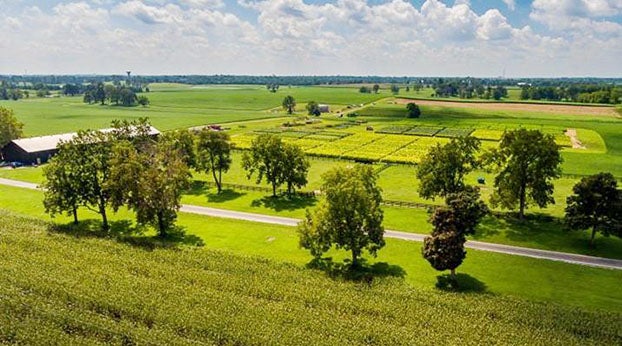USDA makes it easier to transfer land to the next generation of farmers and ranchers
Published 12:18 pm Thursday, January 5, 2017
Agriculture Deputy Under Secretary Lanon Baccam announced that beginning Jan. 9, 2017, the U.S. Department of Agriculture (USDA) will offer an early termination opportunity for certain Conservation Reserve Program (CRP) contracts, making it easier to transfer property to the next generation of farmers and ranchers, including family members. The land that is eligible for the early termination is among the least environmentally sensitive land enrolled in CRP.
This change to the CRP program is just one of many that USDA has implemented based on recommendations from the Land Tenure Advisory Subcommittee formed by Agriculture Secretary Tom Vilsack in 2015. The subcommittee was asked to identify ways the department could use or modify its programs, regulations, and practices to address the challenges of beginning farmers and ranchers in their access to land, capital and technical assistance.
“The average age of principal farm operators is 58,” said Baccam. “So, land tenure, succession and estate planning, and access to land is an increasingly important issue for the future of agriculture and a priority for USDA. Access to land remains the biggest barrier for beginning farmers and ranchers. This announcement is part of our efforts to address some of the challenges with transitioning land to beginning farmers.”
Baccam made the announcement while touring the Joe Dunn farm in Warren County, located in central Iowa near Carlisle. Dunn is the father-in-law to Iowa native and former Marine Aaron White, who with his wife, are prospective candidates for the early termination program. Baccam was joined by Farm Service Agency Iowa State Executive Director John Whitaker when meeting with Dunn and White.
“The chance to give young farmers a better opportunity to succeed when starting a farming career makes perfect sense,” said Baccam. “There are Conservation Reserve Program acres that are rested and ready to be productive, an original goal of CRP. The technical teams at USDA will tell us which ones can terminate from the program with little impact on the overall conservation efforts. When they do, we’ll be ready to help beginning farmers like military veteran Aaron White.”
Normally if a landowner terminates a CRP contract early, they are required to repay all previous payments plus interest. The new policy waives this repayment if the land is transferred to a beginning farmer or rancher through a sale or lease with an option to buy. With CRP enrollment close to the Congressionally-mandated cap of 24 million acres, the early termination will also allow USDA to enroll other land with higher conservation value elsewhere.
“Starting the next generation of farmers and ranchers out with conservation and stewardship in mind is another important part of this announcement,” Baccam said. “The land coming out of CRP will have priority enrollment opportunities with USDA’s working lands conservation programs through cooperation between the Farm Service Agency and the Natural Resources Conservation Service.”
Acres terminated early from CRP under these land tenure provisions will be eligible for priority enrollment consideration into the CRP Grasslands, if eligible; or the Conservation Stewardship Program or Environmental Quality Incentives Program, as determined by the Natural Resources Conservation Service.
According to the Tenure, Ownership and Transition of Agricultural Land survey, conducted by USDA in 2014, U.S. farmland owners expect to transfer 93 million acres to new ownership during 2015-2019. This represents 10 percent of all farmland across the nation. Details on the early termination opportunity will be available starting on Jan. 9, 2017, at local USDA service centers. For more information about CRP and to find out if your acreage is eligible for early contract termination, contact your local Farm Service Agency (FSA) office or go online at www.fsa.usda.gov/crp. To locate your local FSA office, visit http://offices.usda.gov.
Since 2009, USDA has invested more than $29 billion to help producers make conservation improvements, working with as many as 500,000 farmers, ranchers and landowners to protect over 400 million acres nationwide, boosting soil and air quality, cleaning and conserving water and enhancing wildlife habitat. For an interactive look at USDA’s work in conservation and forestry over the course of this Administration, visit http://medium.com/usda-results.




